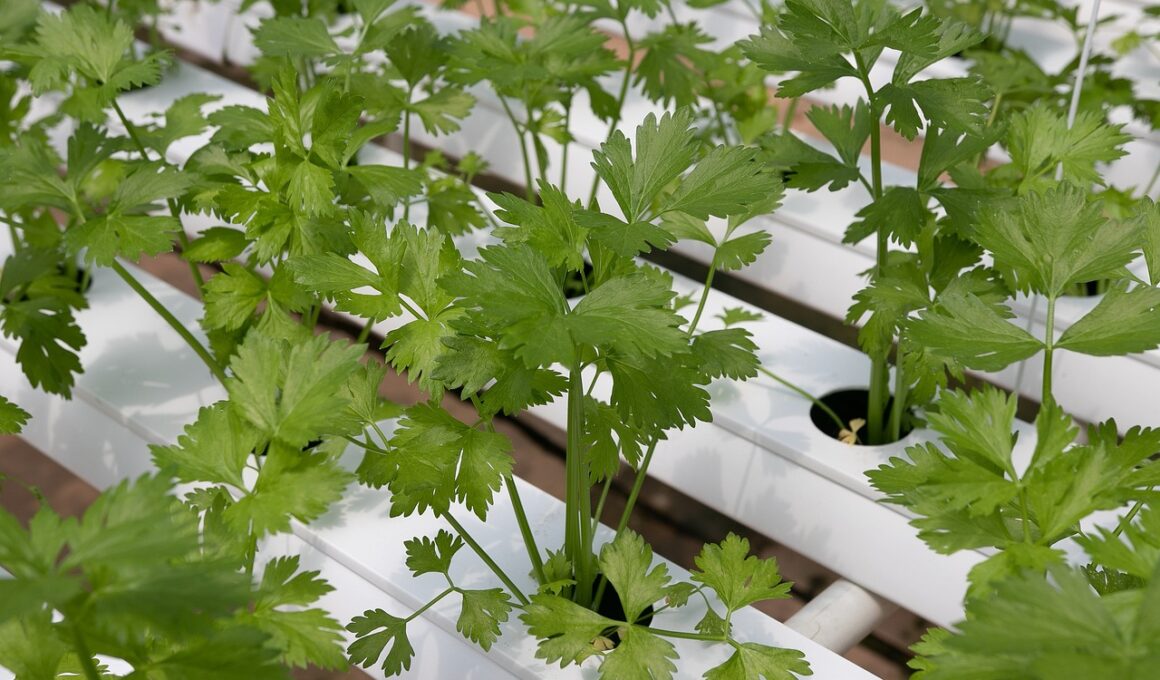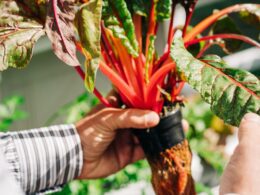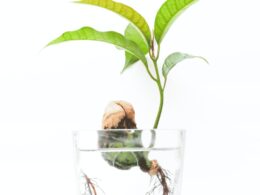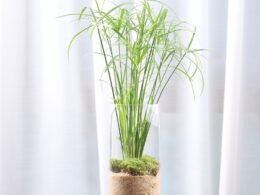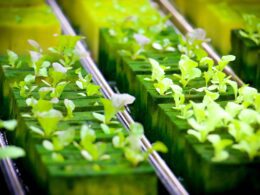Are you planning to start your own hydroponic garden? One of the most important factors that determine the success of your hydroponic setup is the quality of water you use. Choosing the right kind of water can make a significant difference in the growth and health of your plants.
In this article, we’ll explore the different types of water available for hydroponics, their pros and cons, and factors you should consider when choosing the best water for your hydroponic plants.
Water is the lifeblood of hydroponic plants, and it is essential to choose the right kind of water to ensure their optimal growth. The right water quality can help prevent nutrient deficiencies, disease, and other problems that can affect your plants’ health. However, with so many types of water available, it can be challenging to know which one is best suited for your hydroponic setup.
In this article, we’ll help you understand the importance of water quality in hydroponics and guide you in choosing the best water for your hydroponic plants.
Understanding the Importance of Water Quality in Hydroponics
You’ll want to pay close attention to the quality of the water you use in your hydroponic system in order to ensure the success and health of your plants. Water is the lifeblood of your hydroponic garden, and it’s important to understand that not all water is created equal.
Tap water, for example, may contain harmful chemicals and minerals that can negatively impact your plants. That’s why it’s important to invest in a good water filtration system to remove any impurities.
Water filtration is just one step in ensuring the quality of your hydroponic water. Water treatment processes, such as reverse osmosis and UV sterilization, can also be used to remove harmful bacteria and pathogens. These processes can be expensive, but they’re worth the investment in the long run.
By using high-quality water, you can ensure that your plants are getting the nutrients they need to thrive. In the end, the quality of your hydroponic water will directly impact the health and success of your plants.
By investing in a good water filtration system and utilizing water treatment processes, you can ensure that your plants are getting the best possible water. Remember, healthy plants start with healthy water.
Types of Water Available for Hydroponics
For your hydroponic system, you have a few options of water to choose from. Two common types are purified water and tap water. Purified water is free from contaminants and impurities, making it a good choice for hydroponics. However, it can be expensive to purchase in large quantities.
On the other hand, tap water is readily available and cheap, but it may contain chemicals like chlorine and fluoride that can harm your plants.
Another option for hydroponic water is rainwater. Rainwater is natural and free from chemicals, making it a great choice for hydroponics. You can collect rainwater using a rain barrel or other collection system. However, make sure to filter the water before adding it to your hydroponic system to remove any debris or contaminants.
When choosing a water source for your hydroponic system, it’s important to consider the quality of the water. Purified water, tap water, and rainwater all have their pros and cons. Ultimately, the choice will depend on your budget and the availability of water in your area.
Regardless of which type of water you choose, make sure to monitor the pH levels and nutrient levels regularly to ensure optimal plant growth.
Pros and Cons of Each Water Type
Let’s weigh the advantages and disadvantages of each water source for your hydroponic system, so you can make an informed decision that fits your budget and location.
Firstly, tap water is the most common choice for hydroponics as it’s easily accessible and inexpensive. However, tap water may contain chlorine, fluoride, and other chemicals that can harm your plants. It’s best to let the water sit for a day before using it in your hydroponic system to allow the chemicals to dissipate. You can also use a water filter to remove any harmful chemicals.
Another option is using rainwater, which is free and contains natural minerals that can benefit your plants. However, collecting rainwater can be challenging, and it may contain pollutants like acid rain or heavy metals. If you choose to use rainwater, make sure to filter it and test it for any contaminants before using it in your hydroponic system.
Lastly, distilled water is the purest form of water available and is free of any harmful chemicals or pollutants. However, it can be expensive, and the lack of minerals may negatively affect plant growth. If you choose to use distilled water, make sure to add nutrients to the water to ensure your plants receive the minerals they need.
In conclusion, each water source has its advantages and disadvantages, and it’s essential to do a comparison analysis before choosing the best one for your hydroponic system. Consider your budget, accessibility, and the quality of the water source before making a decision. Remember to always test your water for any contaminants and add nutrients to ensure your plants thrive.
Does Using the Best Water for Hydroponics Help Prevent Smelly Water?
Using the best water for hydroponics is crucial for keeping hydroponic water odor-free. The quality of the water directly affects the growth of plants and the prevention of unpleasant smells. By utilizing clean, filtered water, you can maintain a suitable environment and ensure the success of your hydroponic system. Avoiding impurities and contaminants will contribute to a healthy and thriving hydroponic garden.
Factors to Consider When Choosing Water for Your Hydroponic Setup
When choosing water for your hydroponic setup, there are three key factors to consider: pH levels, nutrient levels, and cost.
You’ll want to make sure that your water has the right pH balance for optimal plant growth. Additionally, you’ll need to ensure that your water has the right nutrient levels to support your plants.
Finally, you’ll want to take into account the cost of the water you’re using, as well as any associated costs like transportation and storage.
pH Levels
Maintaining proper pH levels is crucial for successful hydroponic plant growth. This is because the pH levels of the water affect the availability of nutrients to your plants. If the pH level is too high or too low, the plants won’t be able to absorb the nutrients they need, which can lead to stunted growth or even death.
To ensure the pH levels are at the appropriate level, it’s important to regularly test the water. You can purchase a pH testing kit or meter to do this.
If the pH level is not within the ideal range, you can adjust it by adding pH-adjusting chemicals to the water. This will help ensure that your plants are receiving the proper nutrients they need to grow and thrive in your hydroponic setup.
By keeping an eye on the pH levels and making any necessary adjustments, you can help ensure the success of your hydroponic garden.
Nutrient Levels
You need to monitor your nutrient levels closely to ensure your hydroponic plants are getting the proper nourishment for healthy growth. This means understanding how your water source affects your nutrient absorption.
The type of water you use can have a significant impact on the growth and overall health of your plants. For example, if you’re using tap water, it’s important to know whether it’s hard or soft. Hard water can contain high levels of minerals like calcium and magnesium, which can interfere with nutrient absorption. On the other hand, soft water may lack essential minerals that your plants need to grow.
It’s crucial to test your water and adjust its nutrient levels accordingly. You can also consider using purified or distilled water to avoid any potential mineral imbalances. Ultimately, understanding your water source and its impact on nutrient absorption is crucial for healthy hydroponic plant growth.
Cost
If you want to save money while still growing bountiful plants, then cost is a crucial factor to consider in your hydroponic setup. One way you can save money is by choosing a water source that is readily available and affordable in your area. Here are a few options to consider:
-
Tap Water: Depending on where you live, tap water may be a cost-effective option for your hydroponic system. However, be sure to test the water for nutrient levels and pH balance before using it in your setup.
-
Rainwater: If you live in an area with frequent rainfall, collecting rainwater can be a free and sustainable option. However, keep in mind that rainwater may not always be readily available and may require additional filtration.
-
Well Water: If you have access to a well, using well water can be a cost-effective option. However, like tap water, be sure to test the water for nutrient levels and pH balance before using it in your setup.
-
Reverse Osmosis Water: While reverse osmosis water can be more expensive upfront, it can be a cost-effective option in the long run because it eliminates the need for additional filtration and reduces the risk of nutrient imbalances.
Consider the availability and cost of each option before making a decision on the best water source for your hydroponic setup.
Conclusion: Choosing the Best Water for Your Hydroponic Plants
When it comes to ensuring healthy growth for your hydroponic plants, it’s crucial to choose the optimal type and quality of H2O. The type of water you use in hydroponics will directly impact the health and growth of your plants. In order to make an informed decision, let’s take a closer look at the different types of water and their benefits.
Water Sources: The source of your water can have a big impact on the quality of your hydroponic system. Tap water may contain impurities like chlorine, fluoride, and heavy metals, which can harm your plants. Rainwater and well water are good options if you have access to them, but they may still require some treatment. Distilled water is a great choice because it’s pure and free of contaminants, but it can be expensive.
Water Treatment: No matter what type of water you choose, it’s important to treat it properly. Treating your water can help remove harmful chemicals and contaminants that can harm your plants. Some common water treatment options include reverse osmosis, activated carbon filters, and UV sterilization. Each method has its own benefits and drawbacks, so it’s important to choose the one that’s right for your specific hydroponic system.
Choosing the best water for your hydroponic plants requires careful consideration of the source and treatment options available to you. By selecting the right type of water and treating it properly, you can ensure that your plants receive the nutrients they need to grow strong and healthy. Remember to regularly test and monitor your water quality to ensure that your plants are getting the best possible care.
Frequently Asked Questions
Can I use tap water for hydroponics?
If you’re thinking of starting a hydroponic garden, you might be wondering whether you can use tap water or if you need to use purified water. The quality of the water you use in your hydroponic system is crucial to the success of your plants.
Tap water can be used for hydroponics, but it’s important to consider the quality of your tap water. Depending on where you live, tap water can contain high levels of minerals, chlorine, and other chemicals that may harm your plants.
Purified water, on the other hand, is free of these contaminants and provides a clean, nutrient-rich environment for your plants to thrive. Ultimately, the choice between tap water and purified water depends on the quality of your tap water and the specific needs of your plants.
What is the ideal pH level for hydroponic water?
Maintaining the proper pH level in your hydroponic system is crucial for the health and growth of your plants. Regular testing and adjustment of the pH level will help ensure that your plants receive the proper nutrients they need to thrive.
Additionally, it’s important to monitor the temperature of your water, as overly warm or cool water can negatively impact plant growth. By taking the time to test and adjust your pH level and water temperature, you’ll be able to create an optimal environment for your hydroponic plants to grow and flourish.
How often should I change the water in my hydroponic system?
Changing the water in your hydroponic system is crucial to maintaining healthy plant growth. It’s recommended that you change the water every two to three weeks, or when the water becomes too cloudy.
Adding nutrients to the water is also important, as plants require certain minerals to thrive.
Make sure to monitor the water temperature as well, as temperatures that are too high or too low can negatively impact plant growth.
By keeping an eye on these factors, you can ensure that your plants are receiving the best possible care in your hydroponic system.
Is distilled water better than filtered water for hydroponics?
When it comes to hydroponics, the type of water you use is crucial to the success of your plants. While filtered water can be suitable for some systems, distilled water is often the better option.
Distilled water is completely pure, with all impurities and minerals removed. This means that there is less chance of harmful bacteria or fungi growing in your hydroponic system. Additionally, using purified water can help prevent mineral buildup in your system, which can lead to clogs and other issues.
By using distilled water in your hydroponic system, you can ensure that your plants are getting the best possible start in life, without any unnecessary risks or complications.
Can I reuse hydroponic water?
When it comes to hydroponic water maintenance, reusing water can be a tempting option. However, it’s important to consider the benefits of using fresh water for your plants.
Reusing water can lead to a buildup of minerals and nutrients that can harm your plants and decrease their growth potential.
Fresh water, on the other hand, provides your plants with the necessary nutrients they need to thrive. So, while it may take a bit more effort to use fresh water, the benefits are worth it in the long run for healthy, thriving plants.
Conclusion
So, what kind of water is best for hydroponics? It ultimately depends on your specific setup and needs.
If you have access to clean, filtered tap water, that may be the easiest and most cost-effective option. However, if you live in an area with hard water or high levels of dissolved minerals, you may need to consider using distilled or reverse osmosis water.
Regardless of which option you choose, it’s important to regularly test and adjust the pH and nutrient levels in your water to ensure your plants are getting the best possible environment to thrive in.
With a little research and experimentation, you can find the perfect water source for your hydroponic garden and watch your plants grow healthy and strong.





